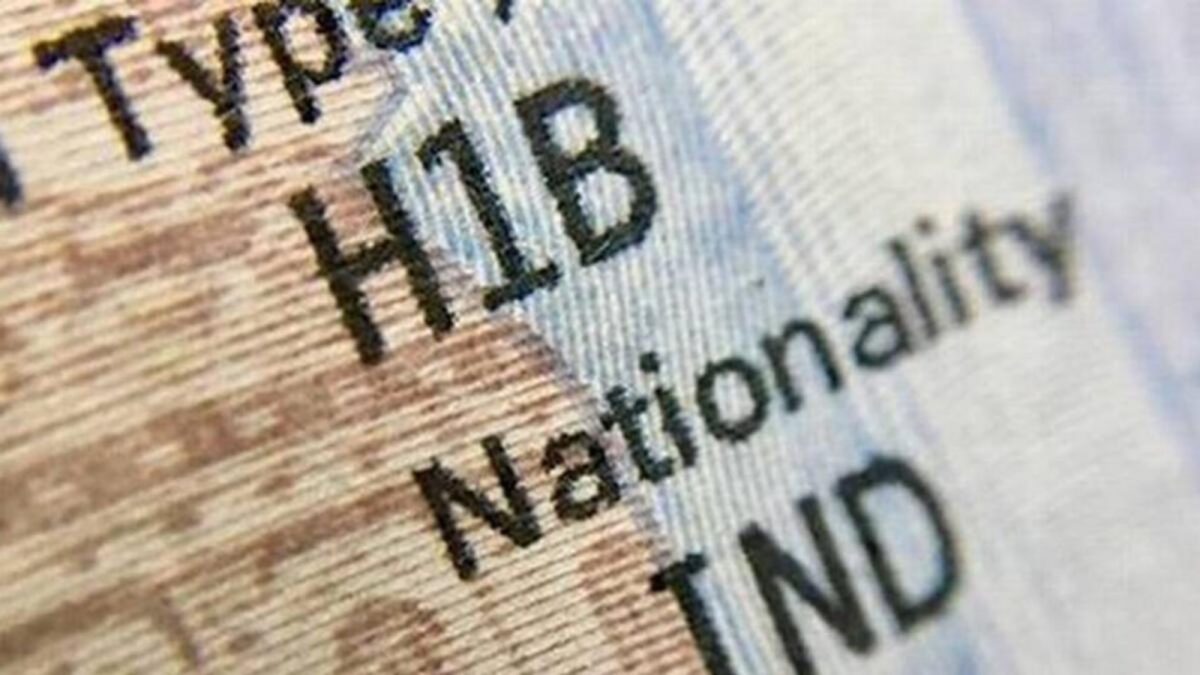Big tech companies are urging H-1B visa holders not to leave the United States, according to a report.
These tech giants are concerned that once their employees leave American soil, they may not be allowed back in.
The development comes in the backdrop of the growing uncertainty in Silicon Valley regarding the Donald Trump administration’s policies surrounding immigration.
Trump in January said he likes both sides of the argument on H-1B foreign guest workers’ visa, noting that he likes “very competent people” coming into the country and that he has used the programme himself.
But what do we know? What do experts say?
Let’s take a closer look:
What do we know?
First, let’s take a brief look at the H-1B visa.
The H-1B visa allows foreigners to work and settle in the US for a certain period.
Indians are among the biggest holders of the H-1B visa.
As per The Times of India, the United States issues 65,000 such visas every year.
Indians, receive the majority of these visas followed by Chinese and Canadian nationals.
From October 2022 to September 2023, Indian nationals received 72.3 per cent of all H-1B visas issued by the US.
According to the report in The Washington Post, tech firms such as Google, Amazon and Microsoft are warning their employees not to leave America.
The newspaper quoted two H-1B card holders as saying they had called off their India trip over concerns about being allowed back into the US.
One H-1B holder expressed worries over the Trump’s administration trying to do away with birthright citizenship.
The holder said that if this comes to pass, future children may become stateless – neither Indian nor American.
The other H-1B holder said, “There’s an assumption that everybody who is not a US citizen might be here illegally.”
“When we’re walking around, we always carry our documents,” the worker said.
An HR worker at a Silicon Valley tech firm told the newspaper such developments “definitely impacts their performance” as “the threat is looming that some action will be taken against them.”
The representative added that businesses are bearing the cost of faster visa extension processing in order to offset delays.
What do experts say?
They say that tech firms and H-1B holders are right to be concerned.
“What we’re seeing right now is just a lot of worry and panic…It seems like [the administration is] just getting more and more momentum, and we don’t know what’s around the corner,” Malcolm Goeschl, principal attorney for Goeschl Law, a San Francisco-based firm focused on business immigration that serves clients in the tech industry, told The Washington Post.
“Since the new Trump administration took office, we have observed a significant increase in questioning of valid non-immigrant visa holders-including H-1B and F-1 visa holders-as well as green card holders at US ports of entry,” Sukanya Raman, country head, Davies & Associates, LLC, an immigration-focused law firm, told The Times of India.
“We are seeing a rise in H-1B holders (Indians) not travelling out of the US, fearing a ban on re-entry as there is a high level of insecurity,” added Gautam Khurana, managing partner, India Law Offices LLP.
Immigration attorney Kripa Upadhyay from Seattle, speaking to the newspaper, said returns to the US are precarious and “extremely vetted.”
This sounds heartless, but foreigners (especially those needing to renew H-1B or F-1 visas) must think twice about leaving the US right now,” Upadhyay.
Trump previously said he ‘liked both sides of the argument’ on H-1B visas.
“I like both sides of the argument, but I also like very competent people coming into our country, even if that involves them training and helping other people that may not have the qualifications they do. But I don’t want to stop — and I’m not just talking about engineers, I’m talking about people at all levels,” Trump told reporters at the White House during a joint news conference with Oracle CTO Larry Ellison, Softbank CEO Masayoshi Son, and Open AI CEO Sam Altman.
Elon Musk, a big Trump backer, has come out in favour of H-1B visas.
With inputs from agencies
)